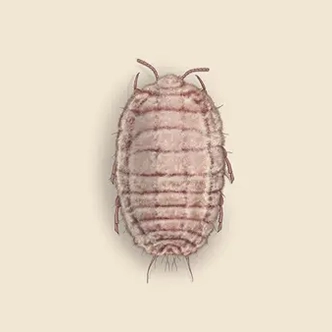Garden Pest Exterminator, Removal, and Treatment Services

Family Pseudococcidae
At Hearts Pest Control, we understand the challenges associated with garden pest infestations and are here to provide professional solutions tailored to your needs. Flourishing in warm and humid climates, they are prevalent in many regions, including San Diego County, Orange County, and Los Angeles County.
Understanding Garden Pest Infestations
Encountering pests in your garden can present a myriad of challenges, each with its own set of pitfalls to navigate. Here’s a closer look at some common garden pests and the issues they bring:
- Whiteflies: These tiny, sap-sucking insects can quickly infest plants, causing leaves to yellow and wilt. Their sticky honeydew secretion attracts ants and promotes the growth of black sooty mold, further compromising plant health.
- Black Sooty Mold: Often a consequence of whitefly infestations, black sooty mold forms a dark, unsightly coating on leaves, hindering photosynthesis and weakening plants over time.
- Aphids – Plant Lice: Aphids are notorious for their rapid reproduction and ability to damage plants by sucking sap from leaves and stems. They can distort plant growth, transmit diseases, and attract predators like ants.
- Scales and Mealybugs: These pests feed on plant sap and produce honeydew, attracting ants and promoting the growth of sooty mold. Scales and mealybugs can weaken plants and cause leaf yellowing and premature drop.
- Leafminer: The larvae of various insects, including flies, moths, and beetles, leaf miners tunnel through leaves, creating unsightly trails and weakening plants. Severe infestations can lead to reduced yields and aesthetic damage.
- Crickets: While crickets primarily feed on decaying organic matter, they can also damage young plants by feeding on seedlings and tender shoots. Their incessant chirping can also be a nuisance in outdoor spaces.
- Mosquitoes: Besides being a nuisance with their biting behavior, mosquitoes are vectors for diseases such as West Nile virus and Zika virus, posing a risk to human and animal health.
- Snails: These mollusks are notorious for their voracious appetite for plant foliage. Their feeding activity can result in ragged leaves and unsightly damage, particularly in moist environments.
- Scorpions: Found in arid regions, scorpions can pose a threat to humans with their venomous sting. They often seek shelter in cool, damp areas around gardens, presenting a hazard to unsuspecting individuals.
- Psyllid: Psyllids are small, jumping insects that feed on plant sap, causing leaf curling, stunted growth, and yellowing. They can transmit diseases to susceptible plant species, impacting overall garden health.
- Varieties of Fungi: Fungal infections can affect various parts of plants, from leaves and stems to roots, leading to symptoms such as wilting, discoloration, and decay. Fungal diseases can spread rapidly in damp, humid conditions, posing a threat to plant health and vitality.
- Lawn Care and Lawn Pests: Lawn pests like grubs, chinch bugs, and armyworms can devastate turfgrass, causing brown patches, thinning, and wilting. Proper lawn care practices, including mowing, watering, and fertilizing, are essential for preventing and managing infestations.
- Fleas: These blood-feeding parasites can infest outdoor areas, particularly where pets frequent. Besides causing discomfort and irritation to pets and humans, flea bites can transmit diseases and trigger allergic reactions.
- Sand Fleas: Found in sandy coastal areas, sand fleas are tiny crustaceans that can inflict painful bites on humans and animals. Their presence can deter outdoor activities and beach enjoyment.
Common Garden Pest Extermination Methods
Attempting to treat a garden pest infestation can feel overwhelming. Common DIY methods often don’t fix the problem or only temporarily solve the problem. Homeowners may try various repellents, traps, or sprays, only to find temporary relief or limited success. This is where calling a professional becomes essential.
How Hearts Handles Garden Pest Treatment
At Hearts Pest Management, we understand the importance of customized solutions for your garden pest control needs. Rather than shying away from challenging tasks, we specialize in working with homeowners to create customized solutions.
Our commitment to landscape and garden health begins with a thorough examination of non-pesticidal methods to manage outdoor pests. We meticulously assess every option available before considering the use of pesticides. Our approach involves reviewing both traditional and cutting-edge pesticide products, including many organic and eco-friendly solutions, based on current industry research and environmental findings.
When pesticides are deemed necessary, we prioritize the least amount of chemical exposure possible to achieve effective results. Our goal is to get the job done right while minimizing any potential harm to the environment or those within it.
Why Hearts is the Best for Garden Pest Treatment
Hearts Pest Management stands out as the premier choice for garden pest solutions for several reasons:
Expertise
Our technicians undergo rigorous training and stay updated on the latest industry standards and best practices.
Safety
We prioritize the safety of our clients, their families, and the environment by using eco-friendly products and methods.
Customized Solutions
We understand that every home is unique, which is why we tailor our treatments to address specific infestation challenges.
Proven Track Record
With years of experience and countless satisfied customers, Hearts Pest Control has earned a reputation for excellence in pest management.
Don't let garden pest infestations take over your home or business. Contact Hearts Pest Management today to schedule a consultation and take the first step towards effective garden pest treatment solutions.
Free Pest Control Inspections Available
Call Now 1-800-986-1006
or complete the form.
- Ants
- Bedbugs
- Bees
- Birds
- Garden Pests
- Gophers
- Mites
- Mosquitoes
- Roaches
- Rodents
- Spiders
- Wasps
Enjoy a pest-free life!
Get Started